If there is one subject senior figures in the car industry are anxious to avoid, it's tariffs.
The subject is extremely sensitive, and if a tariff war with the United States - alongside the current one between Europe and China - becomes a reality, the value of stock in global car companies is threatened and consumers may face higher prices.
All of this at a time when many manufacturers are wrestling with the transition to fully-electric motoring and its attendant costs.
What will also be of concern to some European manufacturers is that many Chinese car companies have already apparently made the strategic decision to absorb tariff costs in Europe to maintain their competitive EV pricing, which has enabled them to build up impressive market share.
"This is all about timing and competition", says one industry source. "It’s only about two years since the threat from Chinese manufacturers became real. Now it’s very real and the Chinese cannot allow their market share to fall dramatically.
"They have done really well in Europe because of price and levels of standard equipment and, having achieved what they have, they can’t afford to lose the initiative. That would be a huge issue for them in the long term because they desperately need that export growth.
"Their growth plans represent a much bigger picture than many people realise," one source familiar with the tariffs issue tells me.
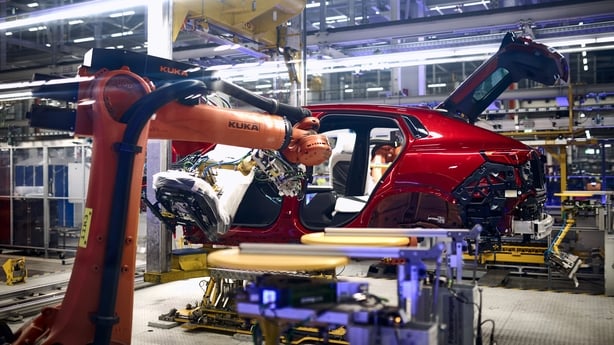
The same source added that if China retaliates with increased sanctions, car prices would be forced up in Europe.
Interestingly, BYD - a company hit with a 17 per cent EU tariff last October - launched its Atto 3 model in Ireland five months before that tariff was imposed at a price of €37,128. At the time of writing, the Atto 3 has a price tag €50 lower than its launch price, thanks to a price promotion.
BYD Ireland says all current pricing in Ireland reflects the imposition of tariffs but current price fluctuations are in line with "routine price adjustment".
Similarly, MG currently has an offer on its MG 4 EV of €26,995 - €500 less than it cost at the time of its launch in February 2023, despite the company having been recently hit with a hefty EU tariff.
Of course, all manufacturers offer discounts and deals but it's unlikely European ones could sustain such campaigns.
Big European car manufacturers, such as BMW, Mercedes and Volkswagen, have been convulsed by the threat posed by tariffs, including tariffs imposed by the EU last November on electric cars from China, sparking a reciprocal threat by China.
Not only do these companies sell a huge volume of cars into China but they also rely on China for critical production and parts.
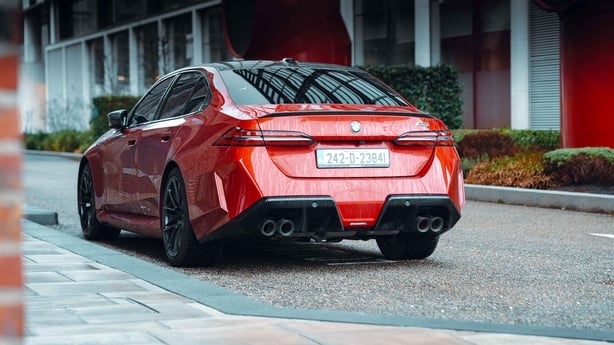
In 2023, BMW built more cars in China than it did at its three main production plants in Germany - 727,000 cars in China, as opposed to 643,000 at those home plants
Oliver Zipse, BMW’s CEO, says high tariffs threaten to make products "more expensive and less innovative."
He has just proposed a compromise to try to ease tensions between Europe and the United States, pointing out that tariffs on American cars coming to Europe are 10 per cent, while tariffs on European cars going in the other direction are only 2.5 per cent.
"Our balanced global setup makes us resilient and competitive. Nevertheless, free trade is of immense importance worldwide: it is one of the most crucial drivers of growth and progress. Tariffs, on the other hand, hinder free trade, slow down innovation, and set a negative spiral in motion. That is why we should be discussing fewer rather than more trade barriers. The EU could take a major first step here."
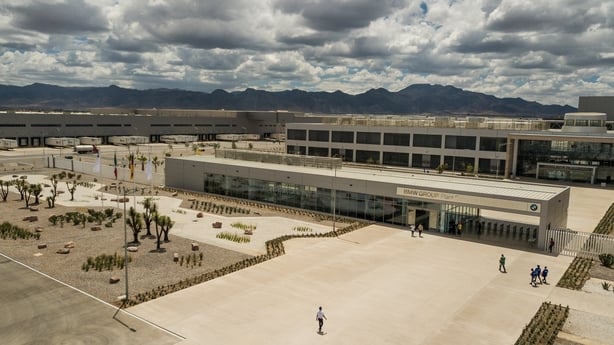
BMW has serious concerns on the other side of the Atlantic, with threats by President Trump to impose significant tariffs on imported cars still looming and a resolution to the row uncertain.
It has made an enormous investment in Mexico to underpin production of electric cars for its Neue Klasse (New Class) from 2027.
It has invested some $1.5 billion in a state of the art plant designed to accelerate the production of electric cars for world markets, including the United States.
Before BMW arrived to build in the semi-desert near San Luis Potosi, the landscape would have done justice to a Cormac McCarthy novel - arid, almost barren, and with high rates of unemployment.
Today, nine out of 10 of the biggest companies operating in the area are connected to the automotive industry and employ over 12,000 people.
There are over 4,000 people employed at the BMW plant, adjacent to which is being constructed an 80,000 square metre battery production area that will facilitate efficient production of BMW's "Neue Klasse" vehicles from 2027, including the United States.
The plant - one of the most advanced in the world - is to be a major element of a production target of 50 per cent of the company’s vehicle sales being all-electric by 2030.
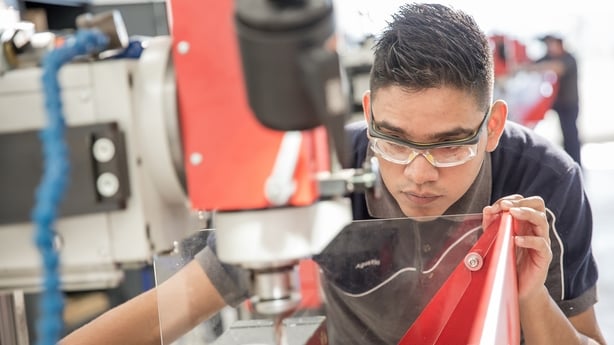
Self-sufficiency in energy is hugely aided by a 71,000 square metre solar farm and almost every drop of rainwater is recycled.
BMW engineers have managed to reduce the amount of water used at the plant to just 0.8 litres per car built. Its paint shop treats and reuses all water used in the painting process - the first time this has been achieved.
Currently, the plant builds its 2 and 3 Series models for the Americas market and its production line sees 28 cars an hour built and ready for export.
BMW will build its Neue Klasse range of electric cars for the US market in San Luis and not at its plant in Spartanburg, South Carolina, where most of its American production is based.
"We are systematically gearing our production network towards electromobility," says Milan Nedeljković, a member of the board of management at the plant
"The first cars of the Neue Klasse will come off the production line at our plant in Debrecen, Hungary, starting in 2025, followed by the main plant in Munich. We will achieve additional volumes by integrating the Neue Klasse at Plant San Luis Potosí from 2027 onwards."
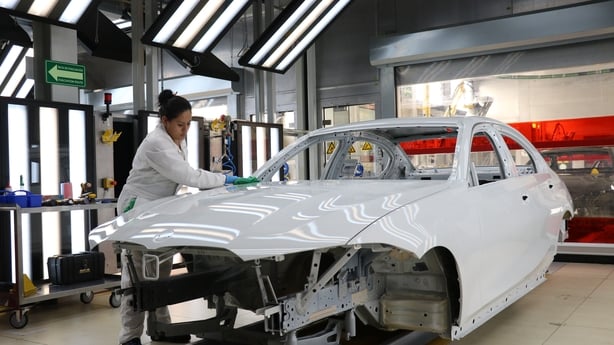
Its production facilities at St. Luis are built to see the company through what is perhaps the greatest transition it has ever undertaken. Its development of schools clubs for local children, and the fact that 36 per cent of the workforce are women, are moves meant to embed the plant in the community in the longer term.
"Our decision on where we build plants is a long-term strategic decision made for at least 40 years," Ilka Horstmeier, a member of BMW’s board recently told the New York Times. "Whenever you put up trade barriers, you harm yourself."
With BMW and other car manufacturers now potentially facing problems with both the EU and the United States, there are interesting times ahead.
The views expressed here are those of the author and do not represent or reflect the views of RTÉ


